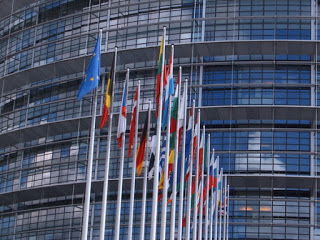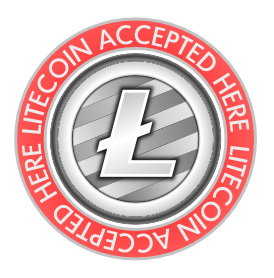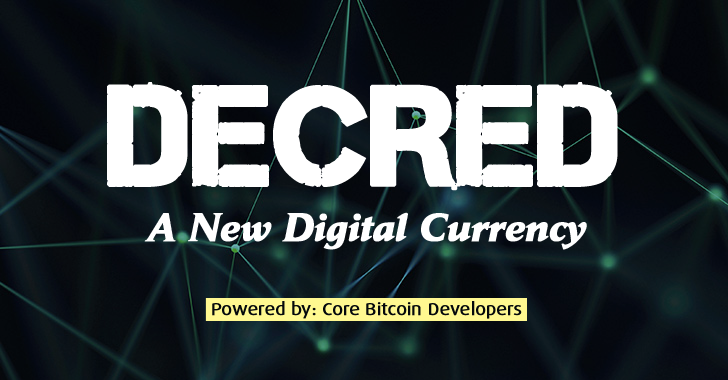
Bitcoin regulation in Europe: “it’s too early”

During a recent event held by the European Parliament, members talked about new technologies including the Blockchain and Ethereum and Bitcoin Regulation.
According to them, the European Parliament will have to regulate and monitor the new tech but “it’s too early to intervene at this stage, because we as legislators don’t yet see sufficiently clearly to know what the main issues are going to be – so in order to not to stifle innovation, we don’t want it to be now.””, said MEP Jakob von Weizsäcker.
So, the EU wants just to monitor blockchain and smart contracts in order to allow developers doing their job.
Also, MEP Eva Kaili from Greece explained that regulation is necessary to protect citizens, but EU doesn’t want to suffocate innovations.
“[In] 2008 when the crisis started in the European Union, especially in my country [Greece], people lost trust in banks and in the politicians. I woundn’t blame them because we didn’t protect them and the reaction was that some young people that we don’t really know discover this technology that actually makes unnecessary to have banks, politicians and intermediaries. So the potential is there, but it is still under progress”.
Also, she continues by saying the following:
“Blockchain is not just bitcoin and bitcoin is not just blockckhain. We need to understand how to protect citizens because if we help them trust this technology, they will actually start to using it. I do believe that banks will outsource a lot of their services,” she said.
Bitcoin regulation to regain trust by citizens
“We’ll have to educate citizens on how to use it […] Hopefully, [bitcoin regulation] will come and we’re going to try to protect the technology and not to stop it. I know that usually politicians and banks don’t want to change and they want to keep control, but I think this technology is unstoppable and we have to give control back to the citizens and maybe this way we can regain some trust,” Kaili argues.
Watch the full conference video here.
Open your free digital wallet here to store your cryptocurrencies in a safe place.

Litecoin Segwit has been finally approved
Litecoin Segwit has been finally implemented, so this long-debate to change to change the digital currency network can be said to be closed now.
Originally intended to improve the bitcoin blockchain, Segwit – or Segregated Witness – had to solve the so-called block size debate, but it has been used on the lesser known litecoin chain, with some in the community that believes that it will help to finally have a quick implementation on the bitcoin network too.
Litecoin Segwit: how does it work?
Segregated Witness, in fact, is a new system that will allow litecoin to improve its block size, by modifying how transaction data is stored by the blockchain itself.
The change was first locked-in two weeks ago, when the proposal reached the 75% threshold level.
Then, the community had to wait two more weeks (8,064 blocks) to ensure that the upgrade approval was consistent.
After that, yesterday (on May 10th) the change was officially activated at block 1201536.
What does it mean?
Litecoin users can now start using a new kind of network, and there has been at least one transaction so far.
Anyway, several supporters are thrilled about the new techs that can now be created on the Segwit-supported network.
For example, the Lightning Network could boost litecoin transactions by million times; thanks to Segwit it can now be used to move real money.
Developer Loshan T explained to CoinDesk:
“I think today will be a great day for pushing more awesome tech into Litecoin. With SegWit activated on litecoin’s mainnet, I cannot wait until we deploy confidential transactions, Lightning Networks, MAST and Schnorr signatures.”
Unfortunately, these projects are early stage right now, but developers from the Lightning Labs seem thinking that it is too early to talk about sending money over an experimental network, so they plan to continue to develop the chain.
The future is unwritten
It not so clear where the Segwit activation will lead to or what role Litecoin will have in the next future.
Loshan explained that some in the community are skeptical about litecoin needs of the Lightning Network tech because litecoin blocks are not full yet, but they would like to have trustless cross-chain transactions between bitcoin and litecoin as a potential Lightning use case; and developer believes could be a benefit for both the digital currencies.
Anyway, at the moment, the Litecoin blockchain seems to work properly, without any issue, even after the Segwit activation.
Open your free digital wallet here to store your cryptocurrencies in a safe place.

Bitcoin in Russia: regulation will take place in 2019
Russia’s Ministry of Communications (Minkomsvyaz) has revealed it is looking for legalizing Bitcoin in Russia and the blockchain technology by 2019.
The local news agency called TASS talks about a document about the Russia’s Digital Economy of the Russian Federation project, which lays out a timeframe for creating and passing the blockchain regulation.
The document quoted the following:
“bringing into effect regulatory acts governing the possible use of technology for decentralized registers and legal certificates.”
Back in March, prime minister Dmitry Medvedev instructed Minkomsvyaz and its counterpart Ministry of Economic Growth (Minekonomrazvitie) to “study to what extent Blockchain would be applicable to our system of government.”
During the last year, Bitcoin in Russia has solidified from a rhetoric point of view also because the Russian Central Bank decided not to ban digital currencies including Bitcoin and this news was useful to calm businesses and users’ after a few years of uncertainty when Russia stated it would ban cryptocurrencies within the country.
Then, back in April, 2017, Russia announced it would recognize Bitcoin by 2018, but monitoring each transaction.
Read more about Bitcoin in Russia here.
Open your free digital wallet here to store your cryptocurrencies in a safe place.

Ether Price passes $100: how to store Ethereum
Ether price, or the digital currency that fuels the world’s second-greatest blockchain network – Ethereum – reached a value of $100 today.
This means that Ether price hits its new all-time high today.
With a growth of more than 25% over one day only, the Ether price has now increased more than 1,000% during the last year: on January 1st, in fact, it was trading at about $8.
At the moment, while I’m writing this article, the digital currency has a market cap of about $9bn, according to data provided by Coinmarketcap.
Why Ether price is growing
This new all time high comes now when the Ethereum blockchain is fast gaining interest by open-source innovators and financial firms worldwide.
Ethereum became important as the main blockchain used for initial coin offerings (ICO, a process by which people working on blockchain-related projects can sell tokens with the goal of raising funding), while major companies such as JP Morgan and Bank of America are developing a few projects on private versions of the Ethereum blockchain.
On the markets point of view, the development comes also thanks to a strong and continued demand for the Ethereum token.
Ether volume registered 20% of the total digital currency market volumes, below bitcoin (46%) and ahead of litecoin (11.38%).
How to store, buy and sell Ethereum
While the digital currency is gaining more and more interest, reaching new all time highs, you may ask yourself: “How should I buy, sell and store my Ether tokens?”
Well, HolyTransaction provides a safe place where you can store, buy and sell your Ether tokens in a user-friendly platform.
You can exchange Ethereum in a few minutes by using more than 10 digital currencies we support on our HolyTransaction multicurrency wallet.
Click here to know more about our Ethereum wallet and exchange.
Open your free digital wallet here to store your cryptocurrencies in a safe place.

Ethereum exchange is now available on HolyTransaction

From now on you can exchange Ethereum for the supported digital currencies in HolyTransaction.
What is Ethereum?
At its simplest, Ethereum is an open software platform based on blockchain technology that enables developers to build and deploy decentralized applications.
Ether was already available on our wallet, but now you can also buy and sell it through 10 more coins we support.
At press time, Ether value is $87.
Exchange Ethereum with 14 cryptocurrencies
Just like Bitcoin, this means that you can now:
- Send Ethereum to any address of other cryptocurrencies with instant conversion on the fly;
- Receive transactions;
- Exchange Ethereum with any supported coins;
- Make instant transactions between HT users;
- Get real time exchange rates on the website;
- Set OTP for additional protection.
Is Ethereum similar to Bitcoin? Well, sort of, but not really.
Like Bitcoin, Ethereum is a distributed public blockchain network. Although there are some significant technical differences between the two, the most important distinction to note is that Bitcoin and Ethereum differ substantially in purpose and capability. Bitcoin offers one particular application of blockchain technology, a peer to peer electronic cash system that enables online Bitcoin payments. While the Bitcoin blockchain is used to track ownership of digital currency (bitcoins), the Ethereum blockchain focuses on running the programming code of any decentralized application.
In the Ethereum blockchain, instead of mining for bitcoin, miners work to earn Ether, a type of crypto token that fuels the network. Beyond a tradeable cryptocurrency, Ether is also used by application developers to pay for transaction fees and services on the Ethereum network.
So, what are you waiting for?
Open your free digital wallet here to store your cryptocurrencies in a safe place.

Oracle Blockchain to improve delivery pipelines
A new Oracle blockchain – related project suggests that the database giant wants to use the distributed ledger in order to improve its internal workflows.
On April 27th, the US Patent and Trademark Office (USPTO) published an application titled “Managing Highly Scaling Continuous Delivery Pipelines”.
First filed in September, 2016, this application explains the use of a “pipeline blockchain” to be used as distributed information points for product delivery processes.
The only inventor quoted on the application is Duncan Mills, a software architect for Oracle.
As detailed in the application, this project is focused on exploiting the distributed ledger ability to provide transparency in order to keep data related to each employee who is contributing to a specific work process.
This would include how they work and what their next tasks; everything happens in real time.
“By its nature, the pipeline blockchain approach provides a self-correcting mechanism for recording and reconciling the state of a pipeline after a system failure. For example, if the record store becomes unavailable, pipelines can continue to process in a fail-safe mode using peer-to-peer reconciliation of the pipeline blockchain, thus maintaining the state of the transactions for the duration of the outage.”
Oracle Blockchain security
Oracle blockchain pipeline’s concept has security system too.
For example, one project may deal with sensitive or private info.
According to the application you can read above, the use of this Oracle blockchain pipeline could allow a user to see what task he/she needs to complete “without having to return control to a central dispatcher”, potentially making their devices vulnerable to external influences.
“This is particularly important where the worker is not in a position to check back with a central dispatcher because of security constraints,” the application states.
The use of the blockchain to facilitate the secure exchange of information is anidea that Oracle has already explained in the past, including in an article wrote last year by Subramanian Iyer, or one of the firm’s senior directors.
“Clearly, blockchain has the ability to increase secure data exchange in other industries as well. It also has the ability to make that data transfer simpler and easier between entities,” he commented.
Open your free digital wallet here to store your cryptocurrencies in a safe place.

Price tripled in 1 year: why you should hold bitcoin
Bitcoin price is nearing its all-time high price of $1,277, maybe because of the impressive growth within the Japanese bitcoin industry. Read here why you should hold bitcoin.
Experts argue that bitcoin price will increase consistently in the mid-term if Japan and the US sustain their growth and if small markets such as India will decide for a massive change related to bitcoin regulation.
Bitcoin price drove by India and Japan
India has always been considered the more important Bitcoin markets because of its poor banking system.
Right now, in fact, 40% of India population can be defined as “underbanked“.
The greatest part of people in India cannot rely on banks and financial institutions to manage their funds.
Recently, the demonetization of 500 and 1,000 bank notes decided by the Indian government led to a national financial crisis, as banks and ATMs ran out of cash to dispense, so Indian citizens cannot obtain cash for their daily basic needs.
Also, PwC explained that 233 mln Indians didn’t have any access to bank accounts since October of 2015 and 43% of adults in India made no deposits or withdrawals in any banks or financial institutions.
Bitcoin hold: why?
Bitcoin exchanges in India – such as Zebpay and Unocoin – began to see a huge growth in their user base and trading volumes.
One key factor that would allow the Indian Bitcoin industry to grow at a rapid rate similar to China, South Korea and Japan is the legalization of Bitcoin.
Bitcoin regulation in India should arrive this summer, according to recent press releases.
This way millions of new users would emerge, and Bitcoin price will rise in the mid-term.
That’s why you should hold bitcoin and store them in a safe place.
Open your bitcoin wallet here on the HolyTransaction multicurrency wallet. You can store more than 10 digital currency within the same account, so it is very easy to manage.
Open your free digital wallet here to store your cryptocurrencies in a safe place.

A new proposal for the Bitcoin block size debate: UASF
Amid the Bitcoin block size debate, an anomymous developer recently talked about a project related to a new solution called UASF or user-activated soft fork.
Many in the community are skeptical about this proposal, but there are enough circumstantial evidences to back it up, and a new movement is growing in the hopes of pushing through the change that miners are now being accused of blocking.
Usually, miners are tasked with pushing through a similar fix. But some in the bitcoin community are calling for a different (and older) method of making a change to bitcoin based on support of the known “economic majority”, instead of miner support.
Coinkite founder Rodolfo Novak, an advocate for this new born movement, explained that it aims at correcting perceived inequities that used to dominate the scaling debate.
“Miners trying to centralize bitcoin is an unacceptable thing. It goes against what bitcoin is supposed to be. This UASF is really like saying, ‘No, we control bitcoin, not you.'”
However, UASF-related support seems to be increasing.
Even if the code is not safe yet, a few users are now supporting it with their nodes.
Node support for this change has grown to 4.8%, or by about six times.
“On a technical level, signaling it that way does absolutely nothing, it does however help the case on a social level and prevents users from running an outdated version of the code when enforcing starts,” developer Damian Mee commented.
Due to UASF system, it might be necessary to have an explicit support from the “economic majority,” or exchanges, wallets, and other bitcoin players.
This support is so far at about 6% since the BIP was put out on March 12th.
However, a sizable percentage of bitcoin nodes are running Bitcoin Core, and SegWit, which Mee thinks is a good indicator that the so-called “economic majority” supports SegWit, and the UASF version.
The code is backwards-compatible, so the 80% of nodes that are now ready for SegWit.
That said, we have to tell that the code implementation hasn’t already fully tested or reviewed.
The original activation for SegWit was put at October 1st, 2017, but recently it was moved to August 1st.
Updates: UASF proposal has been changed. Click here to read more about it.
Open your free digital wallet here to store your cryptocurrencies in a safe place.

Bitcoin block size: UASF updates its proposal
A controversial Bitcoin block size proposal has been upgraded.
UASF, in fact, is a new idea proposed by a pseudonymous contributor called Shaolingfry.
She/he wants to solve the bitcoin block size debate with a user activated soft fork (UASF), a possible method arount the actual deadlock over the Segregated Witness (Segwit) solution.
Right now, the need for a majority consensus in order to make a decision means that any mining pool with enough hashing power has the veto power over any proposal; this might be the reason why SegWit is tardy to arrive.
Conversely, UASF wants to bypass the veto power and put the decision only into the hands of bitcoin’s users.
After a first general UASF proposal, Shaolinfry suggested a change – BIP148 – in order to moving the power out of the miners’ decision and give it to the “economic majority”.
Gregory Maxwell and other bitcoin developers refused this proposal because it could undermine the bitcoin blockchain stability.
“We should use the least disruptive mechanisms available and the BIP148 proposal does not meet that test,” he wrote
For this reason, Shaolinfry announced he/she is working on a redraft of the proposal to address some of the concerns suggested by Maxwell and other developers.
Shaolinfry published an announcement post saying that the reason for this changes is related to technical criticisms of how UASF would upgrade the network.
“BIP 148 is certainly not what a normal UASF would or should look like. While support for BIP 148 is surprisingly high, there are definitely important players who support UASF in general but do not like BIP148 approach.”
This revised proposal suggests the use of BIP8, but this concerns how soft forks are implemented.
Segwit and BIP8
Right now, if the 95% hashrate support for the Segregated Witness option is not reached by November 15th, the proposal will be discarded by default.
Anyway, the technical changes made in a proposal (BIP8) would be automatically locked in at the end of the time period, even if they could be adopted sooner.
Shaolinfry’s idea is that after the November 15th, a UASF SegWit proposal will be edited according to the BIP8 changes.
This means that the bitcoin community would have 1 year to prepare the upgrading of a UASF, removing the possible destabilizing effect of a short-term.
“I believe this approach would satisfy the more measured approach expected for bitcoin and does not have the issues Maxwell brought up about BIP148.”
Open your free digital wallet here to store your cryptocurrencies in a safe place.

Decred 1.0. claims to have a decentralized governance
Decred, a creation of Bitcoin developers, rolls out decentralized governance, claiming a first in blockchain technology.
Decred is a cryptocurrency project and platform built from the ground up to leverage the will of its constituents to drive change. This approach eliminates the conflicts that arise when powerful entities attempt to assert control over a cryptocurrency.
Tomorrow, April 25, 2017 marks the release of Decred v1.0. This historic release puts Decred stakeholders in charge of shaping the future of Decred through direct community consensus voting.
For the first time in the history of cryptocurrencies, governing control moves away from centralized authorities, such as developers and miners, and is given to the community of stakeholders. Decentralization struggles without decentralized governance; this is especially true when it comes to a rapidly growing global currency.
Most cryptocurrencies distinguish themselves by how they secure the transactions on their network.
For example, Bitcoin is famous for using a proof-of-work algorithm that rewards miners for finding solutions to a cryptographic hash puzzle. Other cryptocurrency projects rely on proof-of-stake algorithms that reward users who hold the currency in a “staking” wallet with interest on the balances they carry.
Both approaches have strengths and limitations; Decred takes advantage of the best of both worlds with a hybrid proof-of-work and proof-of-stake consensus system. This allows the platform to strike a balance between benefits to both miners and stakeholders, giving rise to a more robust notion of consensus.
The 1.0 release of Decred will include the first community vote on two important issues.
After 75% or more of miners and stakeholders have updated to 1.0, Decred stakeholders will be able to vote on one consensus change and one signaling vote. Due to the rapidly growing popularity of Decred, the number of stakeholders buying vote tickets has increased dramatically, leading to large oscillations in the ticket price.
This is a good example of an unanticipated condition which needs to be resolved though community consensus. A new ticket price algorithm will aim to ease the large oscillations in ticket price and lead to better ticket price discovery while still maintaining the target ticket pool size.
A consensus change of this magnitude is very difficult to achieve in more traditional cryptocurrencies and requires the voluntary acceptance of the code by miners that may or may not have their own agendas. If it passes, the new ticket price algorithm will activate seamlessly for everyone with no further intervention. The second vote will allow stakeholders to signal support for Lightning Network development.
The Lightning Network is a payment layer that makes it economical and fast to process payments, especially small payments, like buying a cup of coffee without having to pay a large transaction fee to process the transaction. If this signaling vote passes, the developers will begin work on integrating Lightning Network on the Decred blockchain. Once development is complete and tested, a future consensus vote can be taken to automatically activate the Lightning Network code.
The recent 2017 roadmap highlights some of the other massive innovations that the team hopes to put up for a vote throughout the year. In addition, a new improvement proposal system will be put in place soon to allow for the community to contribute directly to the agenda.
The release of Decred 1.0 is a watershed moment in the cryptocurrency movement. This digital currency finally does what has never been done before, putting the power of change in the hands of the very people that care about it most. Decred is celebrating version 1.0.0 release with a puzzle challenge.
The ‘Autonomy Puzzle’ challenge features an initial prize of 500 decred (DCR) to the first solver, equivalent to approximately USD 7,500 at the time of this release. However, players will be working against the clock, as the prize will be reduced every 24 hours. The puzzle difficulty level has been rated ‘easy to medium’, as Decred is aiming to include participants of all skill levels.
Decred Wallet
We recently added Decred among the available digital currencies you can store on the HolyTransaction multicurrency wallet.
We define it as “multicurrency” because you can store more than 10 different cryptocurrencies within the same account and login details.
Open your Decred Wallet here and store it right next to your own Bitcoin, Ethereum and more.
Open your free digital wallet here to store your cryptocurrencies in a safe place.